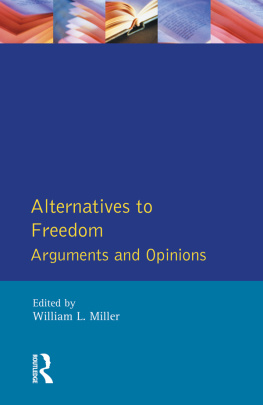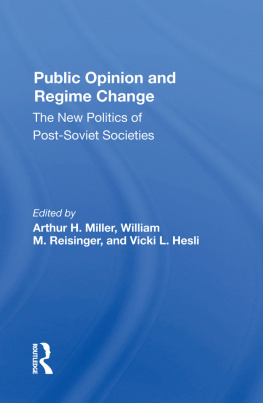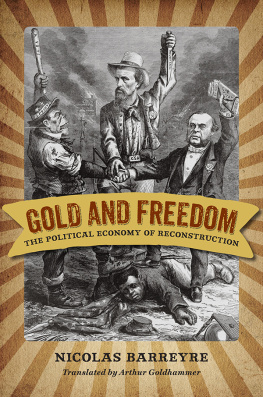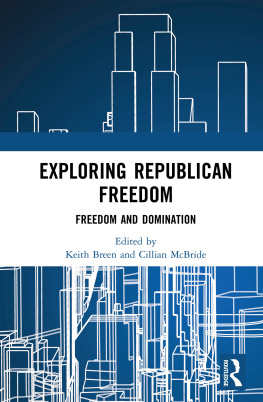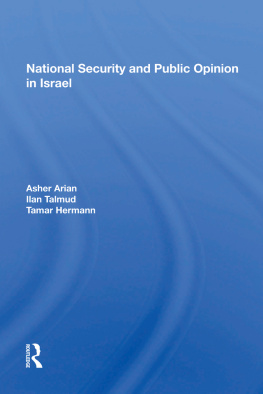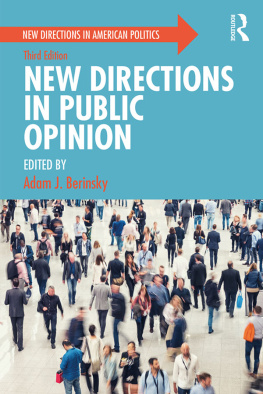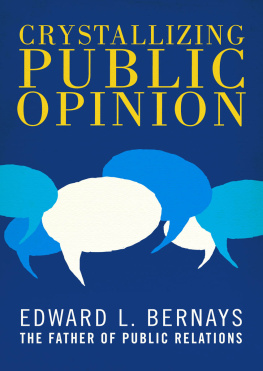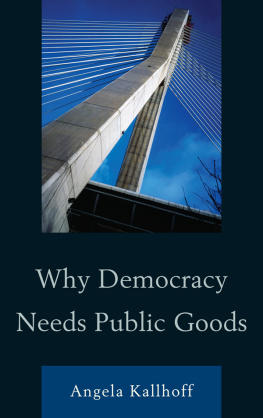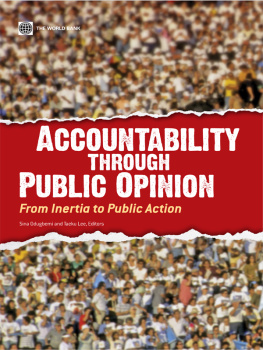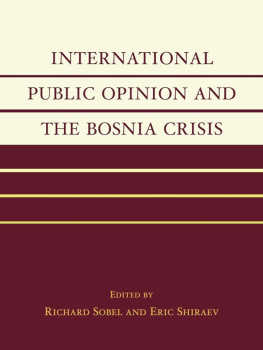Alternatives to Freedom:
Arguments and Opinions
edited by William L. Miller
First published 1995 by Longman Group Limited
Published 2014 by Routledge
2 Park Square, Milton Park, Abingdon, Oxon OX14 4RN
711 Third Avenue, New York, NY 10017, USA
Routledge is an imprint of the Taylor & Francis Group, an informa business
Copyright 1995, Taylor & Francis.
All rights reserved. No part of this book may be reprinted or reproduced or utilised in any form or by any electronic, mechanical, or other means, now known or hereafter invented, including photocopying and recording, or in any information storage or retrieval system, without permission in writing from the publishers.
Notices
Knowledge and best practice in this field are constantly changing. As new research and experience broaden our understanding, changes in research methods, professional practices, or medical treatment may become necessary.
Practitioners and researchers must always rely on their own experience and knowledge in evaluating and using any information, methods, compounds, or experiments described herein. In using such information or methods they should be mindful of their own safety and the safety of others, including parties for whom they have a professional responsibility.
To the fullest extent of the law, neither the Publisher nor the authors, contributors, or editors, assume any liability for any injury and/or damage to persons or property as a matter of products liability, negligence or otherwise, or from any use or operation of any methods, products, instructions, or ideas contained in the material herein.
ISBN 13: 978-0-582-25130-4 (pbk)
British Library Cataloguing-in-Publication Data
A catalogue record for this book is
available from the British Library
Library of Congress Cataloging-in-Publication Data
Alternatives to freedom : arguments and opinions / edited by William
L. Miller.
p.cm.
Includes bibliographical references and index.
ISBN 0-582-25130-3
1. Freedom of the press. 2. Press and politics. 3. Civil rights.
I. Miller, William Lockley, 1943 .
| PN4736.A47 1994 | 9428992 |
| 323.445 dc20 | CIP |
CONTENTS
| William L. Miller |
| Lord Jenkins of Hillhead |
| William L. Miller, Annis May Timpson and Michael Lessnoff |
| Lord Armstrong of Ilminster |
| William L. Miller, Annis May Timpson and Michael Lessnoff |
| Fedor Burlatsky |
| William L. Miller, Annis May Timpson and Michael Lessnoff |
| Elemer Hankiss |
| William L. Miller, Annis May Timpson and Michael Lessnoff |
| Roy Hattersley |
| William L. Miller, Annis May Timpson and Michael Lessnoff |
| Senator Daniel Patrick Moynihan |
| William L. Miller, Annis May Timpson and Michael Lessnoff |
| William L. Miller |
Amongst many other activities, past and present:
Lord (Robert) Armstrong of Ilminster is a former Cabinet Secretary and Head of the Home Civil Service.
Fedor Burlatsky is former Chairman of the USSR Supreme Soviets Human Rights Committee and editor of Literaturnaya gazeta.
Elemer Hankiss is former President of Hungarian Television.
Roy Hattersley is former Deputy Leader of the Labour Party.
Lord (Roy) Jenkins of Hillhead is a former Deputy Leader of the Labour Party, President of the European Commission and first leader of the Social Democratic Party.
Arnold Kemp is editor of the (Glasgow) Herald.
Michael Lessnoff is Reader in Politics at the University of Glasgow.
Daniel Patrick Moynihan is Senior Senator for New York State.
William L. Miller is Edward Caird Professor of Politics at the University of Glasgow, and a fellow of the British Academy.
Annis May Timpson is a Lecturer in the School of English and American Studies, University of Sussex.
Two themes have persistently arisen during my 30 years and more in journalism, of which the last 13 have been as editor of the (Glasgow) Herald. One concerns the constitutional future of Scotland, the second the freedom of the press and the tension between it and government or political parties.
In 1979 Scotland came very close to Home Rule. The Scotland Act, setting up a Scottish Assembly, reached the statute book after a tortuous parliamentary progress. But in the referendum it was endorsed with insufficient conviction by an electorate which had become confused and increasingly apprehensive. When the Callaghan government fell soon afterwards, the devolutionary industry went into recession: those in the media who had become somewhat obsessed by devolution felt that winter had come, and as members of the chattering classes they reflected that perhaps they had lost touch with the real sentiments of a more sceptical public.
In a similar way, it is easy for journalists to think that the public will automatically endorse a libertarian view of press freedom. Yet this is not necessarily the case. In the early 1980s the Herald published a valedictory letter from the British ambassador to Saudi Arabia. Its release was unauthorised and its contents highly embarrassing to the Foreign Office. At about 5 a.m. I was awakened by a call from a sheriffs officer who told me that the government had secured an interdict (or injunction in English parlance) forbidding distribution, by us or our agents, of the edition of the paper carrying the article. The presses had already completed their print-run, and for 10 minutes or so I faced the horrifying prospect that I would have to pull back the entire print from the distributive and retail trades. That would have made me really popular in the board room! However, our astute legal adviser was able to point out that the newspaper distributors were not our servants, but a company in their own right; and since the papers had already been despatched from our building, we could do nothing further. The governments lawyers had slipped up and I breathed a sigh of relief.
But in the morning we were somewhat taken aback by many calls from our readers who, almost without exception, strongly disapproved of our action. Those readers who called I think what Professor Miller would call a self-selecting sample clearly placed the interests of the British government higher than the rights of the Herald on this matter at least.
The issues discussed in this fascinating volume, therefore, are not theoretical. They are encountered in everyday life by journalists, politicians, lawyers and, not least, citizens.
In the last few years, there has been renewed debate both about Scotlands place in the UK as it enters more fully, if still often reluctantly, into the European Union, and about whether new laws are required to restrain the more intrusive aspects of press behaviour, a string of scandals having destabilised the government.
The British press enjoys no entrenched rights, as it does in the United States: it is free before the law

